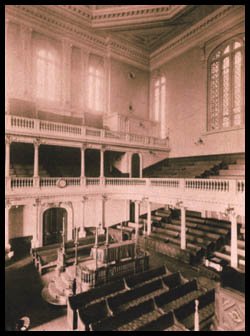The custom of praying three times daily is to be found in the Torah. We rea, for instance, that Daniel got down upon his knees three times a day and prayed and gave thanks before his G-d, as he had done previously (Dan. vi, II). After the Second Temple had been destroyed and the sacrifices had stopped, prayer became the binding and unifying force among the Jews. Fixed periods for daily prayer, introduced by the Rabbis, corresponded with the times when the sacrifices had been offered. The Shacharit - morning prayer - and Minchah - Afternoon prayer - corresponded with the daily morning and afternoon sacrifices. The Maariv - Evening prayer - corresponded with the nightly burning of fats and limbs. There was no public sacrifice in the evening, and the reciting of the evening Amidah was considered by some Rabbis as optional. The custom to recite it gradually became obligatory, as it is nowadays; but to meet this other view the evening Amidah is not repeated aloud by the Chazzan and there is no Kedusha.
On Shabbats, Rosh Chodesh, and Festivals there is the Mussaf - additional service, corresponding with the additional offering sacrificed in the Temple on these days. |
